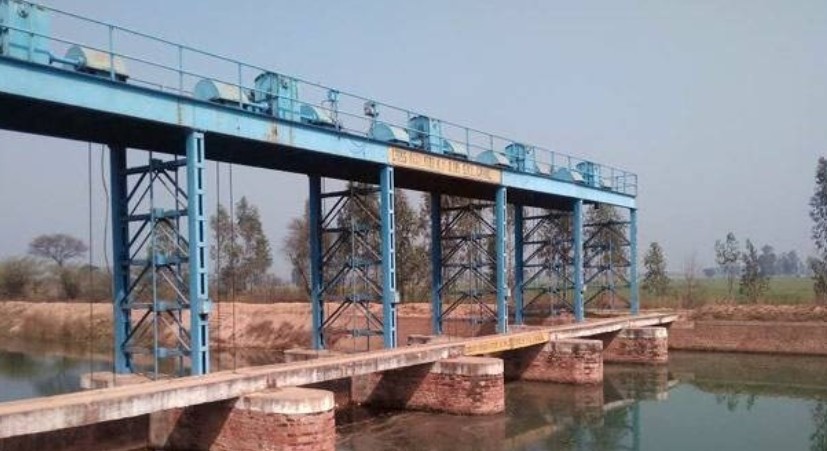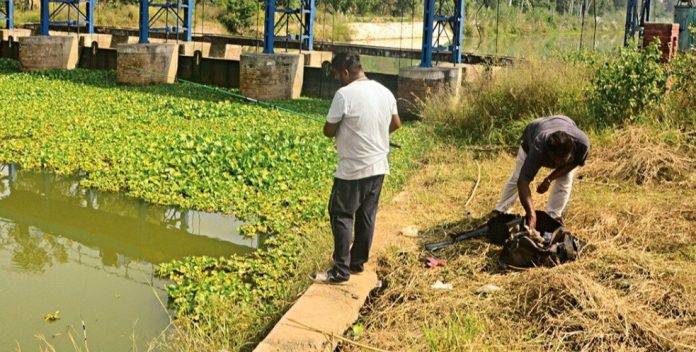The Supreme Court of India, the apex judicial body of the nation, has once again castigated the state of Punjab for its “high-handedness” and “brazen disregard” for judicial pronouncements in its persistent efforts to obstruct the construction of the Sutlej-Yamuna Link (SYL) Canal. In a recent hearing, the Supreme Court expressed its strong displeasure over Punjab’s legislative measures aimed at denotifying the land that was specifically acquired decades ago for the crucial canal project. This stern reprimand from the highest court underscores the protracted and deeply contentious nature of the water dispute between Punjab and Haryana, and highlights the continued defiance of judicial orders by the state of Punjab in this highly sensitive matter.
The SYL Canal, envisioned as a vital artery to share the waters of the Sutlej and Beas rivers between Punjab and Haryana, has been mired in legal and political wrangling for decades. While Haryana has completed its portion of the canal, Punjab has consistently resisted its construction, citing concerns over its own dwindling water resources and the potential impact on its agricultural sector. The Supreme Court has, on numerous occasions, ruled in favour of Haryana’s right to receive its allocated share of water through the SYL Canal, directing Punjab to facilitate its completion.
However, instead of complying with these judicial directives, the state of Punjab has repeatedly taken legislative and executive actions that have effectively stalled the project. The recent move by the Punjab government to denotify the land that was specifically acquired for the SYL Canal has been viewed by the Supreme Court as a blatant attempt to circumvent its previous orders and perpetuate the obstruction of the canal’s construction.
During the recent hearing, the Supreme Court bench expressed its strong disapproval of Punjab’s actions, using strong terms like “high-handedness” and “brazen disregard” to convey its displeasure. The apex court emphasized that such legislative measures, enacted with the clear intention of defying judicial pronouncements, undermine the authority of the judiciary and strike at the very foundation of the rule of law. The court reiterated that its previous orders regarding the SYL Canal were binding on the state of Punjab and that any attempt to circumvent these orders through legislative maneuvering would not be countenanced.

The Supreme Court’s strong stance reflects its deep concern over the continued impasse in this crucial inter-state water dispute. The non-completion of the SYL Canal has not only deprived Haryana of its rightful share of water, as determined by various tribunals and upheld by the apex court, but has also strained inter-state relations and created a sense of injustice in Haryana. The Supreme Court has consistently sought to ensure that the decrees and orders passed by it are respected and implemented by all parties involved.
Punjab’s argument for resisting the SYL Canal has primarily revolved around its claim that it no longer has surplus water to share with Haryana due to depleting groundwater levels and the increasing demands of its own agricultural sector. The state has maintained that releasing more water through the canal would severely jeopardize its own irrigation needs and lead to agricultural distress. While the Supreme Court has acknowledged these concerns in the past, it has consistently held that Punjab is legally obligated to facilitate the construction of the canal to allow Haryana to receive its allocated share, leaving the issue of water availability to be addressed through other mechanisms and negotiations.
The Supreme Court’s strong reprimand in this instance suggests that it is losing patience with Punjab’s continued defiance and is likely to take a more stringent approach to ensure compliance with its orders. The apex court has the constitutional authority to enforce its decrees, and it may consider various measures, including coercive actions, if Punjab continues to obstruct the completion of the SYL Canal.
The implications of the Supreme Court’s stance are significant. It sends a clear message to the state of Punjab that it cannot unilaterally disregard judicial pronouncements and that it must adhere to the rule of law. The apex court’s intervention may also pave the way for renewed efforts to break the deadlock and find a way forward in the long-standing water dispute.
However, resolving the issue will require more than just judicial pronouncements. It will necessitate a collaborative and pragmatic approach involving both the central government and the concerned state governments. Dialogue and negotiations will be crucial to address the genuine concerns of Punjab regarding its water resources while also ensuring that Haryana receives its rightful share. Finding a sustainable and equitable solution that takes into account the water needs of both states, as well as the broader environmental context, will be a complex but necessary undertaking.
In conclusion, the Supreme Court’s strong reprimand of Punjab for its “high-handedness” in attempting to denotify the land meant for the SYL Canal underscores the apex court’s frustration with the state’s continued obstruction of the project. The ruling reaffirms the binding nature of judicial orders and the importance of upholding the rule of law. While the Supreme Court’s stance may exert pressure on Punjab to comply, a lasting resolution to the water dispute will ultimately require a collaborative and comprehensive approach that addresses the concerns of all stakeholders and ensures the equitable and sustainable management of the region’s precious water resources.


